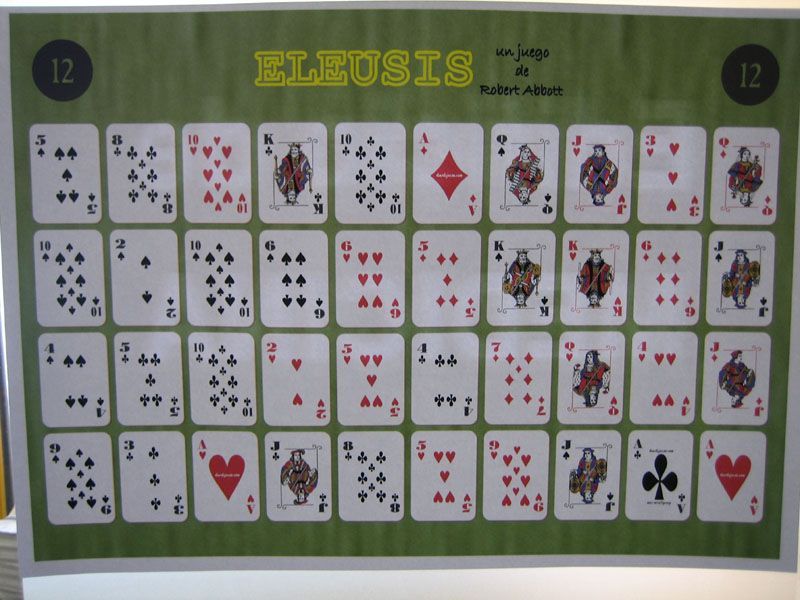Eleusis (1956) Board Game
Eleusis is a card game designed by Robert Abbott in in 1956. It is a game of deduction and pattern recognition, where players take turns to create a rule for which cards can be played next. The game is named after the ancient Greek city of Eleusis, known for its mysterious and secretive religious rites.
Game Components of Eleusis
How To Setup Eleusis
To set up Eleusis, the dealer invents a secret rule determining which cards can be played on top of others. Two decks of cards are shuffled, and 14 cards are dealt to each player except the dealer. One card is dealt face-up to start the row, and a random player is chosen to start. The dealer writes down the secret rule, which remains unknown to the other players.
Gameplay Mechanics and Game Objective
Player Experience
Playing Eleusis is akin to conducting scientific experiments. Players must observe, hypothesize, and test their theories about the secret rule by playing cards and seeing which ones are accepted or rejected. This process of inductive reasoning makes the game engaging and intellectually challenging. The dynamic of guessing the rule and outsmarting opponents adds a fun and competitive edge.
Pros
Cons
Personal Thoughts on Eleusis
Eleusis is perfect for those who enjoy strategic and intellectually stimulating games. It is ideal for groups of friends or families who appreciate puzzles and logical challenges. The game’s ability to mimic the scientific method makes it a valuable tool for teaching inductive reasoning and critical thinking, especially in educational settings. However, it may not be the best fit for casual gamers seeking quick, simple entertainment.
We are supported by our audience. When you purchase through links on our site, we may earn an affiliate commission, at no extra cost for you. Learn more.

